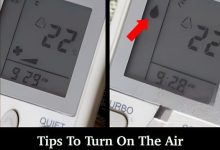THERE’S A REASON THESE CLEANING HACKS SEEM TO GOOD TO BE TRUE: IT’S BECAUSE THEY ARE.
Using DIY carpet cleaning solutions
Homeowners may be tempted to clean their carpets themselves with store-bought products, but James Neal, owner of Rainbow International of Northern Cook and Lake Counties, a Neighborly company, explains that this could leave your carpets worse than you found them. That’s because carpets can collect pollen, mold, and dander that regular carpet cleaners don’t address—and Neal warns that in some cases, store-bought cleaning products can even cause stains to get bigger, brighter, or more discolored.

Putting hairspray on your drapes
Many homeowners believe that applying hairspray to their drapes keep the dust at bay, but even if this hack works in the short term, it could also do long term damage.
If your drapes are made of any fine fabric, the harsh chemicals in hairspray could easily cause their fibers to degrade. But even more importantly, spraying your home decor down with something so highly flammable could prove to be a dangerous fire hazard, especially if your drapes are located near an electrical socket.
Putting wax paper between linens for storage
Think separating your linens with wax paper will protect them? Think again.
“Putting wax paper between linens in a drawer to prevent color transfers and bleeds sounds inspired, but wax paper has a tendency to rub off on fabrics,” explains Parry, who notes that the wax can even melt onto your clothes. Instead, Parry recommends storing your fabrics and linens using acid-free tissue paper.

Cleaning the garbage disposal with eggshells
While some people will swear up and down that eggshells are great for cleaning garbage disposals, experts say the opposite is true. “The membrane layers of eggshells can wrap around the shredder ring, potentially damaging the disposal,” explains Doyle James, president of Mr. Rooter Plumbing, who notes that ground eggshells may even cause clogged pipes over time.

Sanitizing sponges in the microwave
Sanitizing sponges in the microwave sounds like a convenient way to keep those cleaning tools around for longer without inadvertently spreading bacteria through your home.
Unfortunately, a 2017 study published in Scientific Reports reveals that attempting to clean your sponges may actually make them smellier—and can cause the most dangerous bacteria on them to thrive and repopulate quickly.

Using toothpaste on your silver
Many a Pinterest page recommends polishing your silverware with toothpaste. However, toothpaste is far too abrasive to use safely on silver surfaces and can lead to possible damage. “Instead, soak silver in a bath that is a mixture of boiling water, salt, vinegar, and baking soda for 30 seconds, dry the pieces, and buff them with a cloth,” explains Parry, who says that store-bought products can work wonders on scratched silver pieces, too.

Adding extra detergent for more cleaning power
It makes sense that so many people would think that adding more clothing detergent would result in cleaner clothes. But as Chris Blanchette, franchise owner of Mr. Appliance of the Merrimack Valley, points out, doing this can damage a washing machine’s pump and drain, and actually redeposit dirt and grime back onto your clothing.
Instead, Blanchette suggests sticking to the recommended amount listed on the detergent bottle to prevent these extra suds. “In addition to your regular laundry detergent, adding one tablespoon of 20 Mule Team Borax to every load of laundry does wonders for both your clothes and washing machine,” he shares. This will help to keep the detergent evenly dispersed, which in turn eliminates soap residue and buildup in your machine.

Cleaning everything with vinegar
Vinegar can work as a natural cleaning fluid on many surfaces, but that doesn’t mean you can use it everywhere, contrary to what the internet would have you believe.
These suggestions overlook an obvious side effect of cleaning much of your house with vinegar: the overwhelmingly sour smell it can leave behind. If you do opt for a vinegar-based solution, make sure you only use it on non-porous surfaces that won’t absorb the scent. In other words, forget using it to spot clean area rugs, curtains, or untreated wood, as some sites suggest. You should also avoid using vinegar on any stone surfaces, like countertops, as it can degrade them over time.

Cleaning windows and mirrors with newspaper
Many websites have touted the virtues of cleaning your windows and mirrors with newspaper. But according to Brad Roberson, president of Glass Doctor, this advice is out of date.

Polishing your shoes and silver with a banana peel
Bananas have been touted as the surprising solution to many minor problems. They can supposedly whiten teeth, help remove warts, draw out splinters, polish silver, and shine your shoes.
But Parry warns that the benefits of banana peels are most likely overstated. As a shoe shine, “the banana peel can work much like a wax and coat the outside of your shoes,” but won’t condition the leather, he says. Even more importantly, he adds, “you also run the risk of leaving strings and banana chunks all over your shoes.”

Using nail polish remover for stains
Got a stubborn stain on your floor or wood furniture? Some websites suggest cleaning it with nail polish remover.
But don’t go rummaging through your medicine cabinet just yet! Nail polish remover is so powerful that it can actually strip wood of any varnish, paint, or sealant on its surface.

Using coffee on your dark laundry
Rumor has it that adding a cup of black coffee to your laundry can help keep your black fabrics dark. And while this may have a minor effect on the color of your clothing, it’s just as likely to interfere with your washing machine and deposit stains on future loads of laundry.
Best case scenario: your black shirt is slightly blacker. Worst case scenario: your clever “hack” has invalidated your appliance’s warranty policy.







